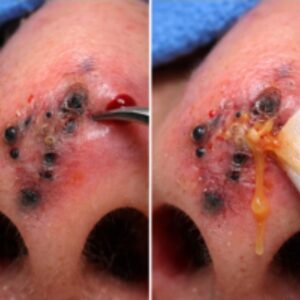Vocal cord nodules are benign growths on the vocal cords that are also referred to as vocal fold nodules in medical terminology. These growths, which can affect both children and adults of any gender and cause a variety of voice problems, resemble calluses that could develop on one’s hands. Known as “Singer’s nodules,” these formations are often observed in people who use their voice frequently in ways that may strain their vocal cords, eventually resulting in nodules and voice issues.
Vocal cord nodules are primarily identified by a hoarse or raspy voice. This can also show up in children as voice cracks or trouble keeping a constant pitch when speaking or singing.
Vocal abuse, including shouting, overusing the voice, and excessive singing, usually results in the formation of vocal cord nodules. This chronic friction causes the vocal cords to become callused and develop nodules that resemble calluses. These symptoms can be made worse by illnesses like gastroesophageal reflux disease (GERD), which increases swelling and inflammation.
Doctors may use procedures like laryngoscopy, which involves inserting a thin camera through the nose and into the throat to examine the larynx, and stroboscopy, which uses a flexible endoscope to observe the motion and vibration of the vocal cords, to diagnose vocal cord nodules. These tests are typically conducted in a clinical setting with the patient awake.
Voice therapy and good vocal care, which includes refraining from voice-strainer behaviors, playing pretend in a healthy way, drinking plenty of water, and maintaining a healthy diet, are the main methods of treating vocal cord nodules. Treatment may also include managing allergies and reflux, two conditions that can exacerbate vocal cord swelling. Treatment at facilities such as CHOP’s Pediatric Voice Program heavily relies on voice therapy, which is supervised by a pediatric speech pathologist.
For young people with vocal cord nodules, the prognosis is usually good in the long run. The majority of patients achieve significant improvement or total resolution of their voice problems with voice hygiene practices, treatment of underlying conditions such as reflux, and voice therapy. Although children rarely require surgery, adult voice users whose careers are severely impacted by nodules may want to consider it.
Three months after voice therapy starts, a preliminary assessment is usually conducted to determine how well the patient is doing. In addition, a clinic follow-up may be arranged if dietary modifications or reflux medication are recommended. Additional appointments might not be required based on how well the patient responds to treatment, unless persistent voice problems continue, in which case it might be advised to periodically monitor the patient every six to twelve months.






